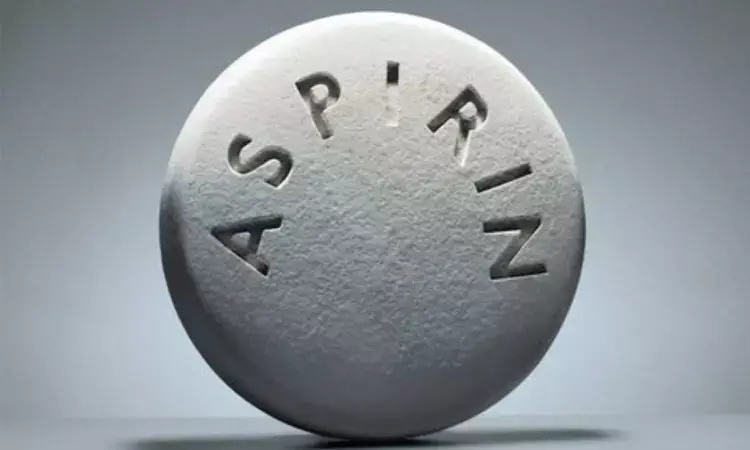- Home
- Medical news & Guidelines
- Anesthesiology
- Cardiology and CTVS
- Critical Care
- Dentistry
- Dermatology
- Diabetes and Endocrinology
- ENT
- Gastroenterology
- Medicine
- Nephrology
- Neurology
- Obstretics-Gynaecology
- Oncology
- Ophthalmology
- Orthopaedics
- Pediatrics-Neonatology
- Psychiatry
- Pulmonology
- Radiology
- Surgery
- Urology
- Laboratory Medicine
- Diet
- Nursing
- Paramedical
- Physiotherapy
- Health news
- Fact Check
- Bone Health Fact Check
- Brain Health Fact Check
- Cancer Related Fact Check
- Child Care Fact Check
- Dental and oral health fact check
- Diabetes and metabolic health fact check
- Diet and Nutrition Fact Check
- Eye and ENT Care Fact Check
- Fitness fact check
- Gut health fact check
- Heart health fact check
- Kidney health fact check
- Medical education fact check
- Men's health fact check
- Respiratory fact check
- Skin and hair care fact check
- Vaccine and Immunization fact check
- Women's health fact check
- AYUSH
- State News
- Andaman and Nicobar Islands
- Andhra Pradesh
- Arunachal Pradesh
- Assam
- Bihar
- Chandigarh
- Chattisgarh
- Dadra and Nagar Haveli
- Daman and Diu
- Delhi
- Goa
- Gujarat
- Haryana
- Himachal Pradesh
- Jammu & Kashmir
- Jharkhand
- Karnataka
- Kerala
- Ladakh
- Lakshadweep
- Madhya Pradesh
- Maharashtra
- Manipur
- Meghalaya
- Mizoram
- Nagaland
- Odisha
- Puducherry
- Punjab
- Rajasthan
- Sikkim
- Tamil Nadu
- Telangana
- Tripura
- Uttar Pradesh
- Uttrakhand
- West Bengal
- Medical Education
- Industry
No benefit of aspirin as adjuvant therapy in breast cancer patients: shows trial

USA: In a groundbreaking development in breast cancer treatment, the Alliance A011502 Randomized Trial has provided compelling evidence regarding the potential benefits of aspirin as adjuvant therapy. The trial, which investigated the efficacy of aspirin compared to a placebo in preventing cancer recurrence and improving survival rates among breast cancer survivors, has garnered significant attention from the medical community worldwide.
The study, published in the Journal of the American Medical Association (JAMA), revealed that there was no benefit of aspirin at 300 mg/d on breast cancer recurrence and survival.
The randomized, placebo-controlled clinical trial comprised 3020 patients with high-risk nonmetastatic breast cancer. The trial was terminated early because of the lack of benefit from aspirin (hazard ratio for invasive disease-free survival for aspirin versus placebo, 1.27 [not statistically significant]).
Despite its wide availability and promise, aspirin should not be recommended as an adjuvant breast cancer treatment, the researchers suggested.
Breast cancer remains one of the most prevalent malignancies affecting women globally, with a pressing need for innovative therapeutic strategies to enhance outcomes and reduce the risk of disease recurrence. Adjuvant therapies, administered post-primary treatment, play an important role in achieving these objectives by targeting residual cancer cells and preventing metastatic spread.
Observational studies of breast cancer survivors and prospective trials of aspirin for cardiovascular disease suggest improved breast cancer survival among aspirin users, however, there is a lack of prospective studies of aspirin to prevent breast cancer recurrence. To fill this knowledge gap, Wendy Y. Chen, Department of Medical Oncology, Dana Farber Cancer Institute, Boston, Massachusetts, and colleagues aimed to determine whether aspirin decreases the risk of invasive cancer events among breast cancer survivors.
For this purpose, the research team conducted a phase 3, randomized, placebo-controlled, double-blind trial (A011502) in Canada and the United States comprising 3020 participants with high-risk nonmetastatic breast cancer, participants were enrolled from 534 sites from 2017 through 2020, with follow-up to March 4, 2023.
Participants were randomized to receive 300 mg of aspirin (n = 1510) or placebo once daily (n = 1510) for five years (stratified for hormone receptor status [positive versus negative], body mass index [≤30 versus >30], stage II versus III, and time since diagnosis [<18 versus ≥18 months]). 3020 participants were randomized when the data and safety monitoring committee recommended study suspension at the first interim analysis because the hazard ratio had crossed the prespecified futility bound.
The primary outcome was invasive disease-free survival. The key secondary outcome was overall survival.
The following were the key findings of the study:
- By median follow-up of 33.8 months, 253 invasive disease-free survival events were observed (141 in the aspirin group and 112 in the placebo group), yielding a hazard ratio of 1.27.
- All invasive disease-free survival events, including death, invasive progression (both distant and locoregional), and new primary events, were numerically higher in the aspirin group, however, the differences were not statistically significant.
- There was no difference in overall survival (hazard ratio, 1.19).
- Rates of grades 3 and 4 adverse events were similar in both groups.
The findings showed that among participants with high-risk nonmetastatic breast cancer, daily aspirin therapy failed to improve the risk of breast cancer recurrence or survival in early follow-up.
"Patients with a history of early breast cancer should not be encouraged to take aspirin routinely to improve their breast cancer outcomes," the researchers wrote.
Reference:
Chen WY, Ballman KV, Partridge AH, et al. Aspirin vs Placebo as Adjuvant Therapy for Breast Cancer: The Alliance A011502 Randomized Trial. JAMA. Published online April 29, 2024. doi:10.1001/jama.2024.4840
Dr Kamal Kant Kohli-MBBS, DTCD- a chest specialist with more than 30 years of practice and a flair for writing clinical articles, Dr Kamal Kant Kohli joined Medical Dialogues as a Chief Editor of Medical News. Besides writing articles, as an editor, he proofreads and verifies all the medical content published on Medical Dialogues including those coming from journals, studies,medical conferences,guidelines etc. Email: drkohli@medicaldialogues.in. Contact no. 011-43720751


